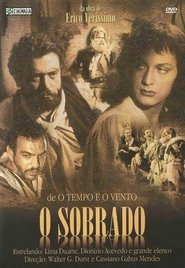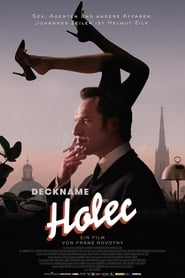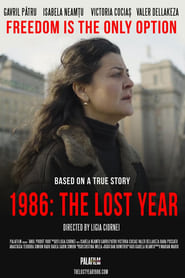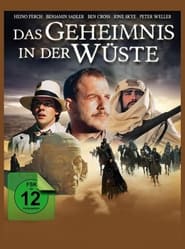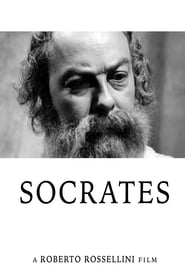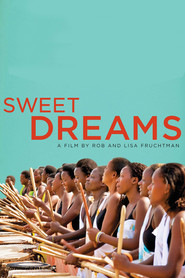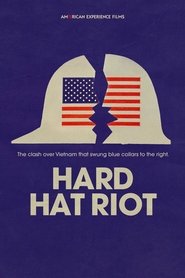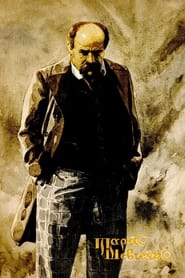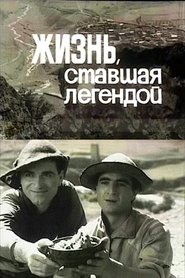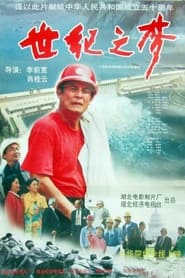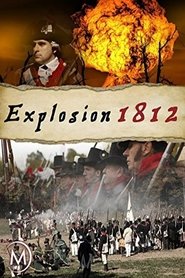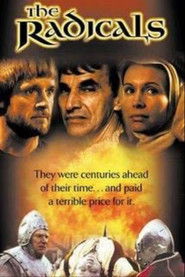Popular History Movies on Tub Tv - Page 343
-
Adoration
1928
Adoration
1928
Billie Dove, as Elena, pulls out all stops as a Russian princess and a woman-of-the-streets in Paris in an exotic romance and hand-wringing drama set in two countries and the way-stations in between. -
O Sobrado
1956
O Sobrado
1956
star 8Based on Erico Verissimo's masterpiece, O Sobrado follows the Terra-Cambará family during the siege imposed to their house by enemies due to political differences. As the siege goes, the family tensions start to show off. -
Hiroshima
2005
Hiroshima
2005
star 7.2The documentary recounts the world's first nuclear attack and examines the alarming repercussions. Covering a three-week period from the Trinity test to the atomic bombing of Hiroshima, the program chronicles America's political gamble and the planning for the momentous event. Archival film, dramatizations, and special effects feature what occurred aboard the Enola Gay (the aircraft that dropped the bomb) and inside the exploding bomb. -
Deckname Holec
2016
Deckname Holec
2016
star 4Young director Honza David films the Russian invasion in in Prague in August 1968. With Eva the love of his life he tries to get out of the country. He wants to bring the explosive material to Vienna, to the director of the Austrian Television Helmut Zilk. He knows Eva very well but the Czech Secret Service even better ... -
The Lost Year 1986
2022
The Lost Year 1986
2022
star 7.732 years after the fall of communism and one hundred years after the founding of the Romanian Communist Party, three young independent filmmakers set out to make their feature film debut with a film about an invisible enemy, the radioactive cloud since 1986. Although a large part of the artistic team of the film The Lost Year 1986 was born after the 1989 Revolution, they will tell with humor and sincerity the story of a family from a village in communist Romania, affected by the Chernobyl nuclear accident. -
Anonymous
2011
Anonymous
2011
star 6.4Set against the backdrop of the succession of Queen Elizabeth I, and the Essex Rebellion against her, the story advances the theory that it was in fact Edward De Vere, Earl of Oxford who penned Shakespeare's plays. -
Jane Austen: Behind Closed Doors
2017
star 7.3Historian Lucy Worsley visits the places and houses in England where Jane Austen spent time and which served as inspiration for the settings of her novels. -
The Surprising History of Sex and Love
2002
star 8The Surprising History of Sex and Love is a documentary presented by Terry Jones, looking at the different and surprising attitudes to sex and love throughout history. The documentary traces the story of changing social and religious attitudes to sex through a broad swathe of history. Starting with the place of ’sacred sex’ in the ancient world and ending with a discussion of the contemporary relationship between sex, marketing and prurience, the film offers some kind of map of how we got from there to here, and indicates that changes in sexual attitudes are connected with issues of power and control. -
Tower of the First Born
1998
star 2Despite her friends' warnings, a woman travels to the Sahara, determined to find her missing archaeologist father and the magical tower he was searching for. Aided by a mysterious prince, she battles outlaws and the desert's harsh conditions. -
Kunoichi Sekigahara 3D
2010
star 5Yayoi slammed into an assassin. However, they expect an onslaught Josui The line is used to intercept this army Kuroda tolerated. Thus ninja, dropped off into the open fire of the battle of interspersed dark sorcery.. -
Socrates
1971
Socrates
1971
star 7.1A false accusation leads the philosopher Socrates to trial and condemnation in 4th century BC Athens. -
Sweet Dreams
2012
Sweet Dreams
2012
star 7A group of Rwandan women embark on a journey to heal the wounds of the past and create their own unique path to a future of peace and possibility. -
Hard Hat Riot
2025
Hard Hat Riot
2025
On May 8, 1970, construction workers violently clashed with students demonstrating against the Vietnam War in lower Manhattan. The workmen, who came to be known as “hardhats,” were at the cutting edge of a new kind of class war. With the war in Vietnam raging on, it was the sons of the working class who were doing most of the fighting. Workmen saw the protesting students as privileged “draft dodgers” disparaging the country and those who fought for it. On the other side, many student activists saw the workers as pawns, unwilling to see the changes that America needed. Hard Hat Riot tells the story of a struggling metropolis, a flailing president, a divided people, and a bloody juncture when the nation violently diverged ― culminating in a new political and cultural landscape that radically redefined American politics and foreshadowed the future. -
Gospel According to Mary
2023
star 5.9The story of Mary is reinvented, no longer a spectator but a courageous architect of her own existence. -
Taras Shevchenko
1926
Taras Shevchenko
1926
The film adaptation of Taras Shevchenko’s biography of 1925 is the first Ukrainian biopic. At that time, it was one of the most expensive films, as for the first time experts in history, ethnography, and literary studies were involved in pre-production. The famous Modernism artist, academician Vasyl Kryvhevskyi designed the film, and professor Serhii Yefremov served as a consultant. Consisting of numerous short stories, the film that shows the life of Shevchenko as an adolescent, a soldier, a poet, was successfully demonstrated in Ukraine and abroad and became the most acknowledged cinema project of 1926. Amvrosii Buchma played Taras Shevchenko. -
A Legendary Life
1970
A Legendary Life
1970
In an attempt to earn money for a bride dowry, a young man unwittingly embarks on a globe-trotting journey that takes him from his homeland of North Ossetia all the way to Alaska. -
A Century's Dream
1998
-
Leonardo
2009
Leonardo
2009
Art and science intersect in unexpected ways, as Da Vinci's experiments with flight lead him to the discovery of his most famous muse. -
Explosion 1812
2012
Explosion 1812
2012
On April 27, 1813, American forces defeated the British at York (present-day Toronto) and captured the capital of Upper Canada - but not before suffering their own losses. History Television's Explosion 1812 looks at the Battle of York and unearths new evidence around this lesser-known event from the War of 1812. -
The Radicals
1989
The Radicals
1989
The story of the Anabaptist movement and two of its first leaders, Michael and Margaretha Sattler.
 Netflix
Netflix
 Amazon Prime Video
Amazon Prime Video
 Apple iTunes
Apple iTunes
 Apple TV Plus
Apple TV Plus
 Disney Plus
Disney Plus
 Google Play Movies
Google Play Movies
 Paramount Plus
Paramount Plus
 Hulu
Hulu
 HBO Max
HBO Max
 YouTube
YouTube
 fuboTV
fuboTV
 Peacock
Peacock
 Peacock Premium
Peacock Premium
 Amazon Video
Amazon Video
 The Roku Channel
The Roku Channel
 AMC+
AMC+
 Kocowa
Kocowa
 Hoopla
Hoopla
 The CW
The CW
 Vudu
Vudu
 Starz
Starz
 Showtime
Showtime
 PBS
PBS
 Pantaflix
Pantaflix
 FXNow
FXNow
 Tubi TV
Tubi TV
 Kanopy
Kanopy
 Comedy Central
Comedy Central
 Crunchyroll
Crunchyroll
 Microsoft Store
Microsoft Store
 Redbox
Redbox
 Sun Nxt
Sun Nxt
 ABC
ABC
 DIRECTV
DIRECTV
 Crackle
Crackle
 Fandor
Fandor
 Plex
Plex

